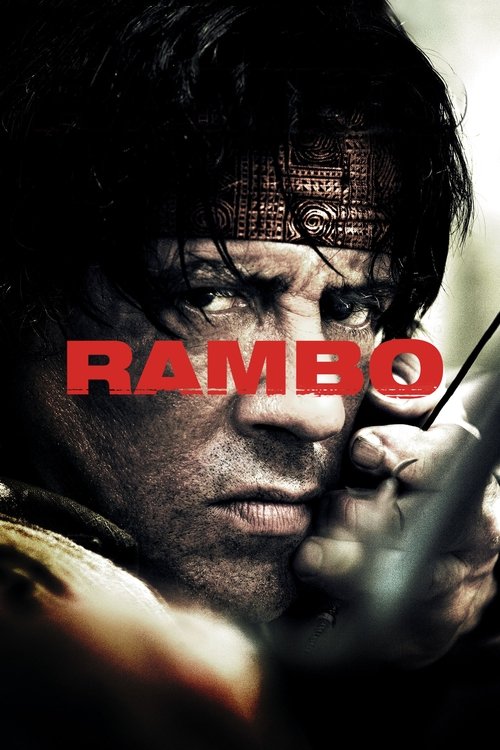
Title: Rambo
Year: 2008
Director: Sylvester Stallone
Writer: Sylvester Stallone
Cast: Sylvester Stallone (John Rambo),
Julie Benz (Sarah),
Matthew Marsden (School Boy),
Graham McTavish (Lewis),
Reynaldo Gallegos (Diaz),
Runtime: 92 min.
Synopsis: In Thailand, ex-Green Beret John James Rambo joins a group of mercenaries to venture into war-torn neighboring Myanmar to rescue a group of Christian aid workers who have been kidnapped by a ruthless local infantry unit.
Rating: 6.683/10
Blood and Redemption: The Visceral Catharsis of Rambo (2008)
/10
Posted on July 22, 2025
In Rambo (2008), Sylvester Stallone, as both director and star, delivers a raw, unflinching meditation on violence and redemption that transcends its action B-movie roots. Unlike the earlier entries in the franchise, which leaned into cartoonish bravado, this fourth installment grounds itself in a grimly realistic portrayal of human conflict, set against the harrowing backdrop of Myanmar’s civil war. Stallone’s direction is not subtle, but it is purposeful, crafting a film that wields its brutality as a narrative force rather than mere spectacle. The screenplay, co-written by Stallone and Art Monterastelli, is sparse yet deliberate, prioritizing visceral impact over verbose exposition. It follows John Rambo, a war-weary loner, reluctantly drawn into a rescue mission for missionaries captured by a sadistic military regime. The dialogue, though minimal, carries an understated weight, particularly in Rambo’s terse exchanges, which reveal a man grappling with his own moral decay.
The cinematography, led by Glen MacPherson, is a standout, capturing the lush yet oppressive Burmese jungle with a palette that shifts from verdant greens to blood-soaked browns. The camera’s unflinching gaze during the film’s violent sequences graphic depictions of dismemberment and slaughter avoids glorification, instead forcing the audience to confront the horror of war. This visual starkness amplifies Stallone’s performance, which is less about bravado and more about a haunted stoicism. His Rambo is a man whose physicality speaks louder than words, each scar and weary glance a testament to a life of unending conflict. Supporting performances, particularly Julie Benz as the idealistic missionary Sarah, add emotional texture, though the ensemble is occasionally overshadowed by the film’s relentless pace.
However, the film falters in its pacing and character development. The missionaries, while sympathetic, are thinly sketched, serving more as plot devices than fully realized individuals. The second act drags slightly, with repetitive skirmishes that delay the climactic confrontation. Yet, these flaws do not derail the film’s emotional core: a meditation on whether violence can ever serve a redemptive purpose. The score by Brian Tyler, blending mournful strings with percussive urgency, underscores this tension, elevating key moments without overwhelming them. Ultimately, Rambo is a brutal, introspective journey that dares to ask if a man forged in violence can find peace, leaving viewers both rattled and reflective.
0
0
